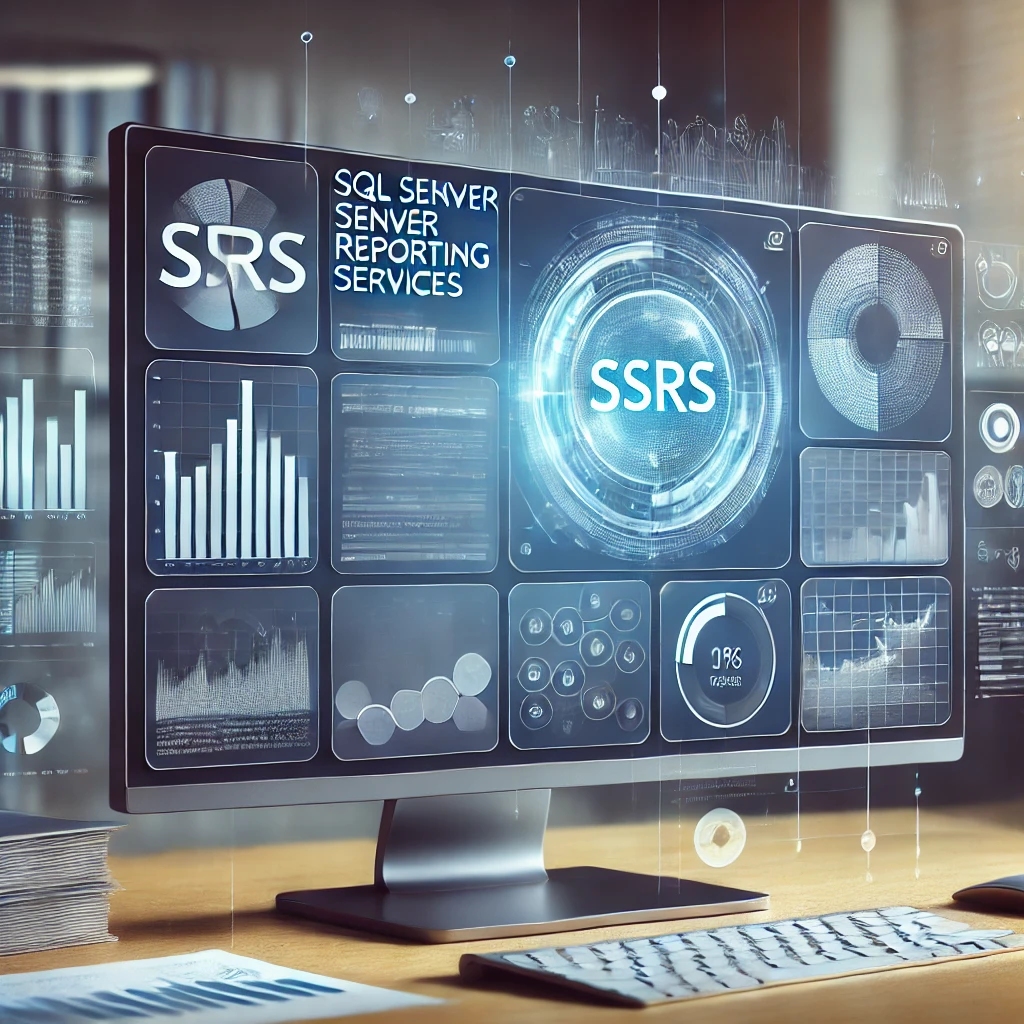Integrating SQL Server Reporting Services (SSRS) into DevOps Workflows for Efficient Reporting and Automation
 Zahoor Farooq
Zahoor Farooq
Introduction
In DevOps, continuous integration and delivery are key to ensuring fast, reliable, and high-quality software releases. While development and deployment tools take center stage, integrating SQL Server Reporting Services (SSRS) can enhance insights and reporting capabilities, making DevOps workflows even more efficient. This article explores the benefits, challenges, and best practices of integrating SSRS into DevOps environments.
Why Use SSRS in DevOps?
SSRS offers powerful reporting solutions for data-driven applications, providing detailed reports that DevOps teams can leverage for monitoring, auditing, and performance analysis. By embedding SSRS into DevOps, organizations can automate the generation and distribution of real-time reports, giving stakeholders valuable insights into deployments, test results, and system performance.
Key Benefits of SSRS Integration
Automated Reporting: SSRS can be configured to automatically generate and distribute reports after deployment events, providing visibility into key metrics.
Consistent Monitoring: Integrating SSRS with DevOps pipelines enables consistent tracking of performance data and other KPIs, facilitating proactive issue identification.
Enhanced Collaboration: Reports generated by SSRS can be shared across teams, fostering collaboration between developers, testers, and operations staff.
Customizable Metrics and Dashboards: SSRS supports customization, allowing teams to tailor reports and dashboards to specific DevOps needs, such as build status, test coverage, and resource usage.
Steps to Integrate SSRS into DevOps Pipelines
Integrating SSRS involves configuring SSRS report automation and creating links to deployment triggers. Here’s a step-by-step guide:
Setup SSRS with SQL Server: Ensure SSRS is installed, configured, and has access to the necessary databases. Configure permissions so SSRS can access deployment data and performance logs.
Define Metrics and KPIs: Identify the key metrics (e.g., deployment frequency, failure rates) you want to monitor in DevOps. Create SSRS reports for each KPI, keeping them relevant to DevOps needs.
Automate Report Generation: Use SSRS scheduling capabilities or REST API to automate report generation. Configure SSRS to produce reports based on deployment or pipeline completion events.
Integrate with CI/CD Pipelines: In tools like Jenkins, GitLab CI, or Azure DevOps, configure the pipeline to call SSRS APIs or to trigger report generation scripts after specific stages, like post-deployment.
Distribute Reports: Set up email distribution, saving to a file server, or direct upload to a collaboration platform. Configure the distribution frequency and access permissions.
Challenges and Solutions
1. Access Control and Security
Challenge: Ensuring secure access to sensitive deployment and performance data.
Solution: Use secure authentication methods and define role-based access for SSRS reports.
2. Data Consistency
Challenge: Maintaining data consistency across environments (dev, test, production).
Solution: Use environment-specific data sources and parameterized reports to align data sources with deployment environments.
3. Complexity in Report Customization
Challenge: Customizing reports for diverse DevOps needs can be complex.
Solution: Start with core metrics and gradually expand to more detailed reports. Leverage templates and reusable report components.
Best Practices for SSRS in DevOps
Use API Integrations: Whenever possible, use the SSRS API for greater flexibility and automation capabilities.
Parameterize Reports: Create parameters for different environments and metrics to make reports reusable across the pipeline.
Automate Testing of Reports: As with any component of DevOps, automate the testing of SSRS reports to ensure they meet requirements and remain accurate over time.
Monitor Report Performance: Regularly check report generation times, and optimize queries to avoid delays in report generation during high-demand periods.
Conclusion
Integrating SSRS into DevOps provides valuable, automated insights and enables data-driven decision-making for improved software delivery. With SSRS, DevOps teams can efficiently track and share KPIs, enhancing collaboration and transparency across the organization. By following best practices and addressing common challenges, SSRS can become a powerful tool in your DevOps workflow.
Subscribe to my newsletter
Read articles from Zahoor Farooq directly inside your inbox. Subscribe to the newsletter, and don't miss out.
Written by

Zahoor Farooq
Zahoor Farooq
Code enthusiastic fr